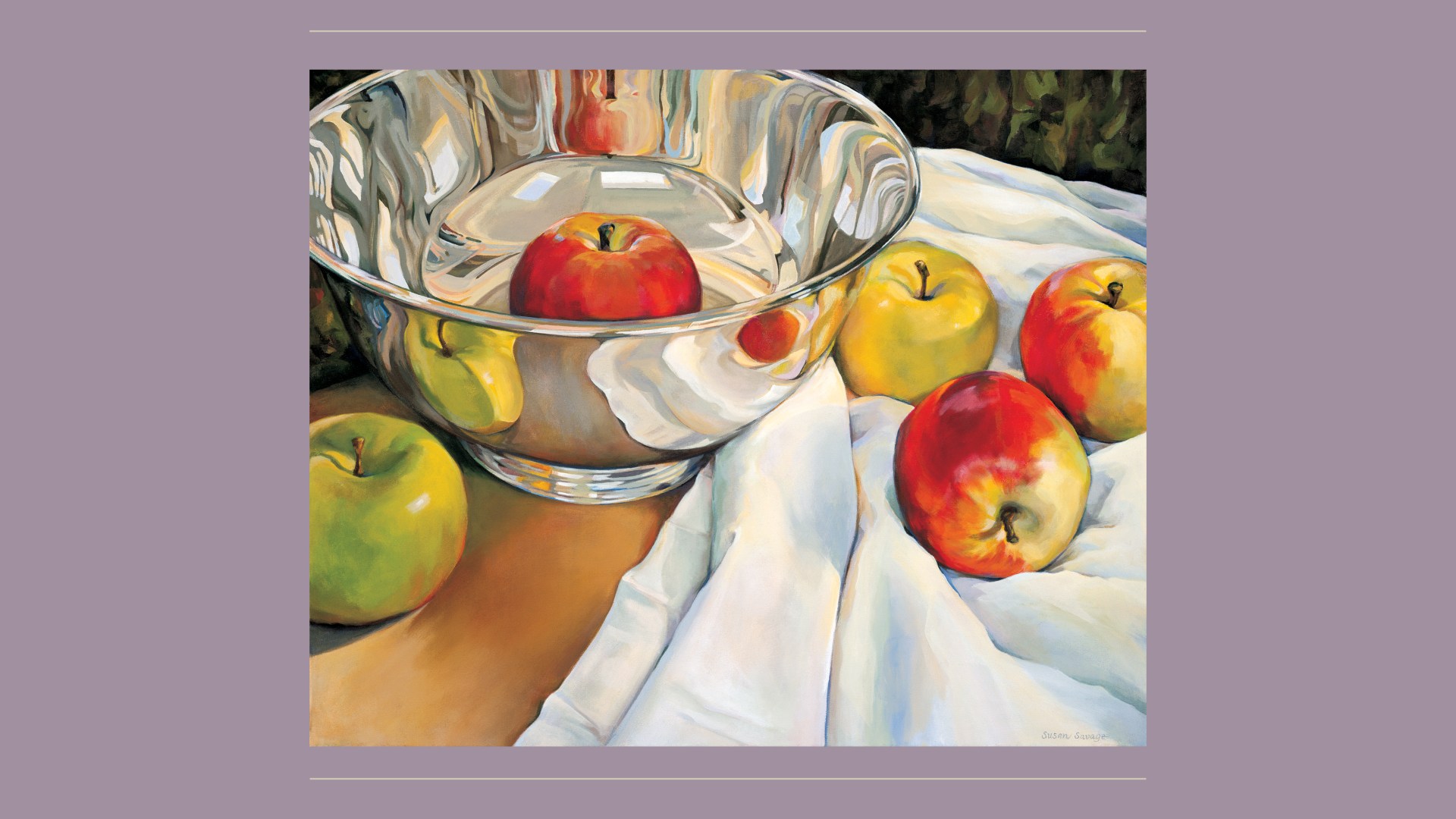If there’s one thing I love, it’s an unexpected gift—whether given or received. Recently, I’ve found myself sending house guests on their way with things I’ve cherished: teapots, clothes, and even jewelry off my own person. I’ve felt the exhilaration and freedom found in the act of giving things away— things with real value. But extravagant and unexpected giving like this rarely comes from a place of natural generosity. There’s a supernatural grace at work, like the grace we see in the story of the woman with her alabaster jar (Mark 14:3–9).
I know this is grace because I’ve spent most of my life suffering from a scarcity mindset: the idea that there’s not enough to go around, and I’d be better off socking away what little I have. When I read the account of the woman anointing Jesus in the days before his crucifixion, my spirit wells with a resounding, Yes! and I wipe away tears in awe of this momentous act of worship. But I confess—and cringe as I do so—that my flesh still has the same response as those who were in the room, and I start to scrutinize her extravagance.
Against the protests of wastefulness and impropriety, Christ defends the woman, explaining to his disciples that she has prepared him for burial (v. 8). Her act of devotion and sacrifice will forever point to the Good News, and she will be remembered whenever it is proclaimed in all the world (v. 9). The woman anointing Jesus emptied out what could have been her most precious possession, pouring out her treasure for the sake of God incarnate. She anointed the Word before his burial, bringing about a tangible reminder of Jesus as the Anointed One, the long-awaited Messiah (Isaiah 61:1–3).
I imagine Jesus would still have been faintly fragrant with that oil as he was taken before Pilate. I imagine he would still have the sweet woody aroma of the nard on his hair, his beard—the lingering anointing. As he carried his cross, I wonder if the bystanders caught the fragrance, beyond the smell of sweat and blood. Perhaps they smelled a sweetness in the air as Christ ascended Golgotha. I wonder if the men nailed to their own crosses on either side of him picked up the scent.
The sign of anointing was largely reserved for kings in ancient Judaism. This woman’s bold act not only acknowledged Christ as King of Kings and Lord of Lords, it also foreshadowed what Christ would do two days later as he poured himself out in a lavish, loving, and seemingly foolish way on the cross. By giving himself as an offering, Jesus accomplishes what we could never have done for ourselves. What can sometimes look like foolishness to us is faithfulness; what appears wasteful is worshipful.
My generosity is more a spiritual discipline than a virtue; I cannot boast in giving because it’s against the will of my flesh. God, in his kindness, both invites me to give generously and empowers me by his Spirit to do so. I’ve come to realize that in teaching me to give things away he’s healing the part of me that still believes there won’t be enough. So I boast in this weakness, and I rejoice even though I still sometimes hear the voices directed at the woman at Bethany:
“How dare you do that?”
“This is irresponsible. You are irresponsible.”
“You’re giving away what you can’t afford. And for what?”
Then comes Jesus, my defender: “She has done a beautiful thing . . . She did what she could.” And the voices hush.
Hannah Weidmann is the co-founder of Everyday Heirloom Co., a brand dedicated to adorning women as God’s beloved using timeless methods of craft and storytelling.
This article is part of Easter in the Everyday, a devotional to help individuals, small groups, and families journey through the 2024 Lent & Easter season. Learn more about this special issue here!









